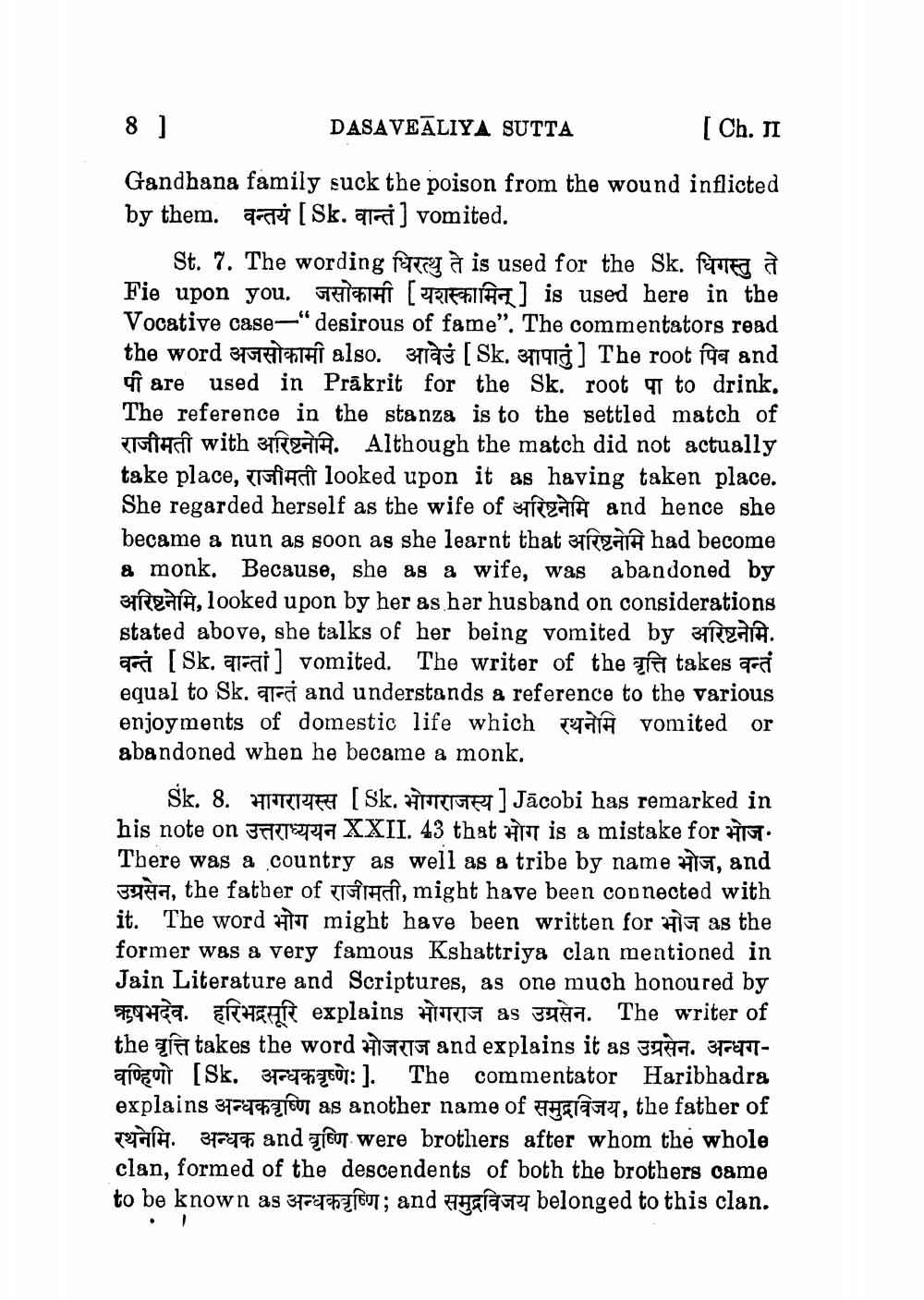________________
8 ]
DASAVEĀLIYA SUTTA
[ Ch. JI
Gandhana family suck the poison from the wound inflicted by them. वन्तयं [ Sk. वान्तं ] vomited.
St. 7. The wording धिरत्थु ते is used for the Sk. धिगस्तु ते Fie upon you. जसोकामी [ यशस्कामिन् ] is used here in the Vocative case-"desirous of fame". The commentators read the word अजसोकामी also. आवेडं [ Sk. आपातुं ] The root पिब and पी are used in Prakrit for the Sk. root to drink. The reference in the stanza is to the settled match of राजीमती with अरिष्टनेमि. Although the match did not actually take place, it looked upon it as having taken place. She regarded herself as the wife of and hence she
had become abandoned by
.
became a nun as soon as she learnt that a monk. Because, she as a wife, was Rg, looked upon by her as her husband on considerations stated above, she talks of her being vomited by वन्तं [ Sk. वान्तां ] vomited. The writer of the वृत्ति takes वन्तं equal to Sk. qr and understands a reference to the various enjoyments of domestic life which vomited abandoned when he became a monk.
or
Sk. 8. भागरास्स [ Sk. भोगराजस्य ] Jacobi has remarked in his note on उत्तराध्ययन XXII. 43 that भोग is a mistake for भोज. There was a country as well as a tribe by name, and उग्रसेन, the father of राजीमती, might have been connected with it. The word might have been written for as the former was a very famous Kshattriya clan mentioned in Jain Literature and Scriptures, as one much honoured by ऋषभदेव. हरिभद्रसूरि explains भोगराज as उग्रसेन. The writer of the वृत्ति takes the word भोजराज and explains it as उग्रसेन. अन्धगवहिणो [Sk अन्धकवृष्णेः ]. The commentator Haribhadra explains अन्धकवृष्णि as another name of समुद्रविजय, the father of रथनेमि अन्धक and वृष्णि were brothers after whom the whole clan, formed of the descendents of both the brothers came to be known as अन्धकवृष्णि ; and समुद्रविजय belonged to this clan.
1




